Parliament debated two big new bills this week with very different responses.
We discussed the housing density bill earlier. It was negotiated between National and Labour and everyone but ACT felt very warm and cosy in it. Briefly, central government plans to take back some control from local authorities in order to achieve the desired outcome.
The second bill was on Health - but the response came with divergent second opinions.

Photo: 123rf
A treatment theme
The second big first reading was a health bill where central government plans to take back control from local authorities in order to achieve the desired outcome.
That might sound familiar to the housing approach, but on this topic the parties were at vehement odds over the treatment plan.
National MP Matt Doocey characterised the change as “socialist central planning”, and said “we had the Hon Nanaia Mahuta with her steamroller going over the top of local authorities [with Three Waters]. And now we have Andrew Little on his wrecking ball, wreaking through DHBs.”
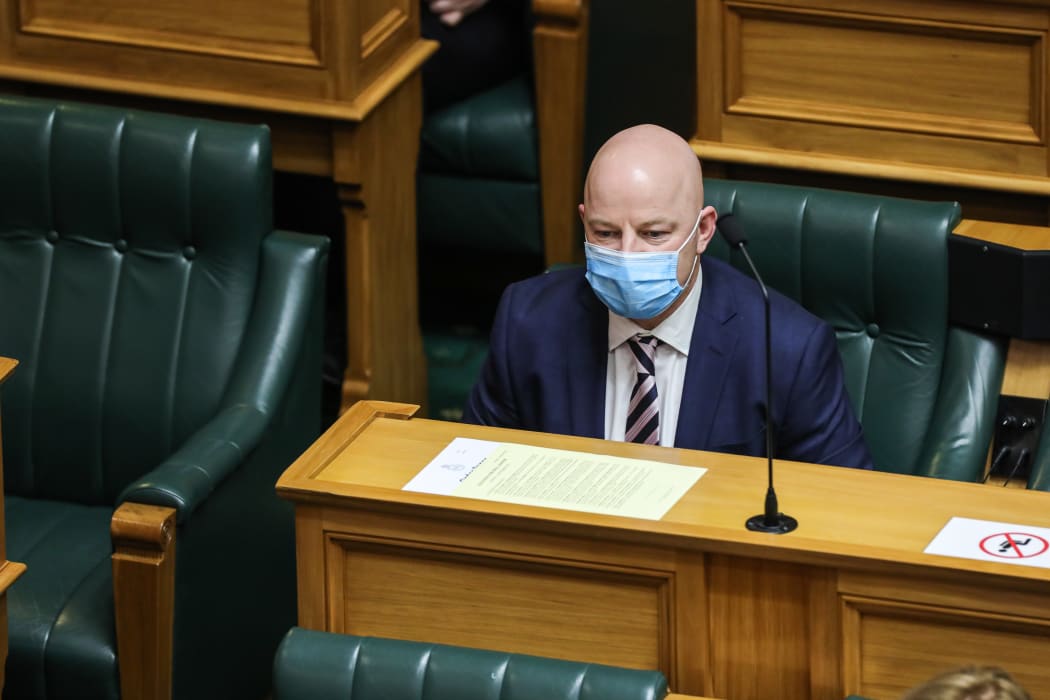
Matt Doocey looking ready for surgery. (file photo) Photo: VNP / Phil Smith
A Patient History
The Pae Ora (Healthy Futures) Bill would restructure health governance in the country, eliminating the DHB model that Labour introduced a couple of decades ago and trying for a centralised model.
This is not a return to the model that existed prior to DHBs.
Before DHBs were Crown Health Enterprises (1993), which were also regional but with a profit motive. CHEs had replaced another regionalised administrative model; Area Health Boards (1983).
From what I can ascertain (e.g. check out this excellent timeline of NZ Health), the last time Health was somewhat centralised was in 1967 when the eight hospital districts were reduced to two.
Symptoms and diagnosis
Because this is a first reading the public gets an opportunity for feedback on this new bill, so below is a sense of the plan and the various political party positions to help in your thinking.
But first, the Minister of Health Andrew Little outlined ‘the presenting problem’ as your GP might say. The general symptoms appeared to be agreed by all the parties.
“The reality is that there is an extraordinary disparity of health outcome in this country, depending not only on who you are—and if you are Māori, you are much more likely to have worse health outcomes than pretty much anybody else in the population—but also about where you live. Where you live will also determine what access you get to many forms of healthcare and, therefore, what happens to you.”
“On average, Māori men can expect to live seven years shorter than anybody else in the population. That tells you that there is something seriously wrong.”
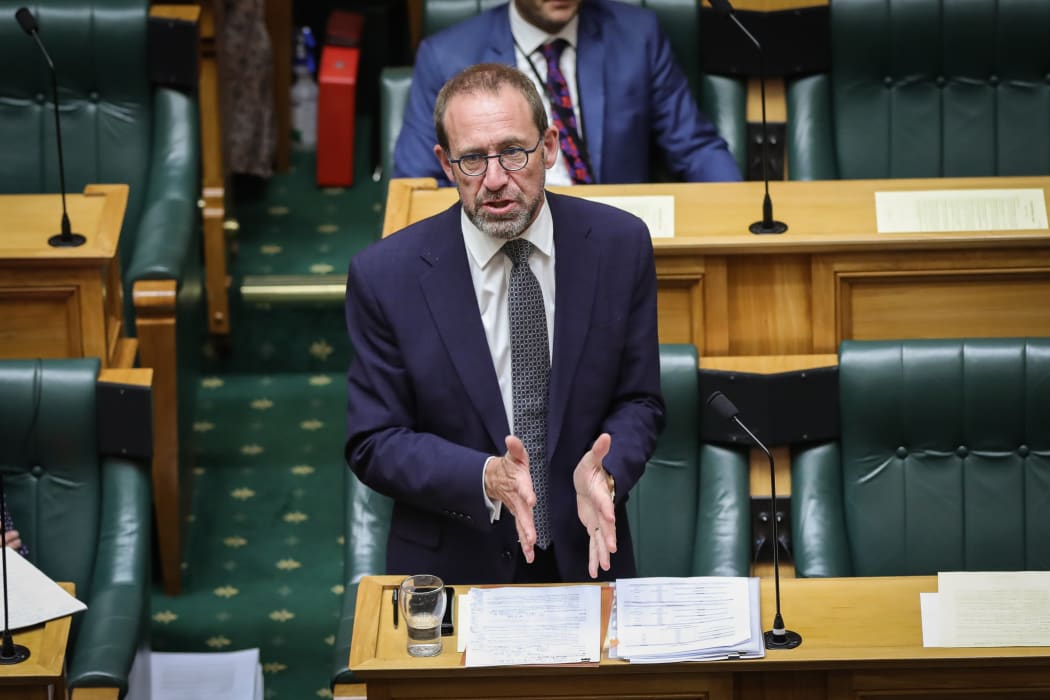
Labour MP Andrew Little debating in the House Photo: ©VNP / Phil Smith
Andrew Little also diagnosed the etiology of the condition.
“Over time, a problem has emerged: …when you disaggregate decision making for a system for 5 million people into 20 different organisations, then you shouldn't be surprised that disparities emerge and differences emerge and differentiation emerges and, then, people suffer the problem of access to different health services and, therefore, different health outcomes, depending on where you are in the country. So, in many respects, the way we live, what we do, and technology—all those things—have conspired to make the current system obsolete.”
Treatment plan: DHB-ectomy
I’ll let Andrew Little outline the details of the proposed surgery and treatment plan.
“This legislation …takes the 20 DHBs that we have at the moment and puts them into one organisation. It has the benefits of coordination across the system as a whole; not 20 different decision makers in different parts of the country, but one decision maker that can plan across the system as whole… This reform and this bill will allow us to do that with the establishment of Health New Zealand.”
And regarding the Maori Health Authority:
“…We will also establish the Māori Health Authority… The Māori Health Authority does not set up a separate system; it is an independent statutory body that works hand in glove with Health New Zealand to make sure that their advocacy—that is to say the Māori Health Authority's advocacy but also commissioning powers—makes sure that the needs of Māori are met in a way that they simply have not been for many, many years, and that we are seeing demonstrated time and again just in the last 20 months.”
And on local planning:
“The bill provides for and requires Health New Zealand and the Māori Health Authority to support the locality planning process….Now, through the locality planning process, we would draw together the health providers in an area, the community representatives, and we can actually start to get health plans in locality areas that are relevant to those communities. That is what the bill will do.”
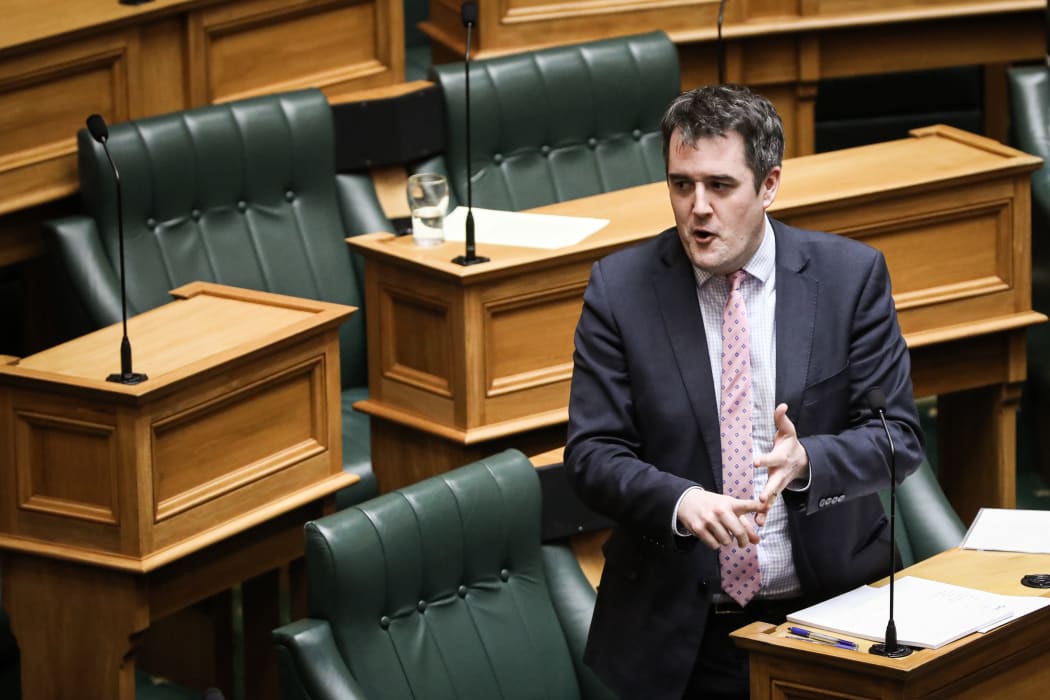
National Party MP Chris Bishop lists roading projects in the House Photo: ©VNP / Phil Smith
The second opinions: National
MPs agree in Parliament more often than you might think, but seldom on these larger, more systemic issues. That is true of this one. As a conservative body National's default is towards minimal intervention therapy.
Among the speakers for National Chris Bishop boiled down their opposition.
“So you can make a case for change, but you have to be really sure that we're going to get the benefits, and… it is not clear to me that we will get more operations out of it. Will these reforms mean better primary care in our communities? I do not believe the case has been made that they will.
“Will it mean more connected health resources, for Māori and Pasifika communities and harder to reach communities where there are health inequities and inequalities? I do not believe that that case has been made.
“It's going to a committee, you never quite know, we are pretty firm in our opposition to this, but we'll wait and see what the evidence shows. But at a time of a global pandemic, with very scant evidence for reform, the Government's belief in this bill seems, frankly, heroically optimistic at best, and naively incompetent at worst. Sadly, I think it is more of the naively incompetent than the heroically optimistic.”
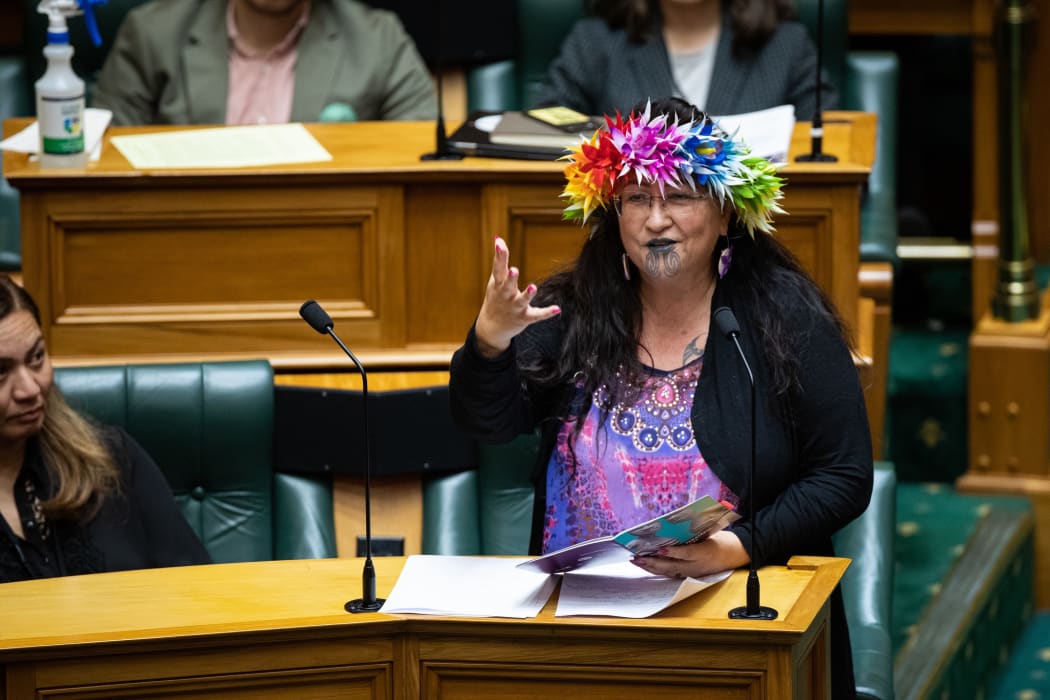
Green MP Elizabeth Kerekere speaks in the debate on Conversion Practices Photo: VNP / Phil Smith
A concurring opinion: Green
For the Green’s Elizabeth Kerekere seemed pretty enthusiastic:
“Thank you for this opportunity to support the Pae Ora (Healthy Futures) Bill. The restructure of our health system is a huge step forward, making the wellbeing of all New Zealanders a reality.
“…This new health system, we very much support it. We support its aim to give effect to Te Tiriti o Waitangi, the most important evidence of which is the establishment of the Māori Health Authority.
“We note that the Māori Health Authority will commission kaupapa Māori services. So this a big deal alone. As one of many, many Māori who have sat on advisory boards in a range of different sectors, we know that usually there is no power and there is no money; so this here is a great start. We know that the Māori Health Authority will also co-commission with Health New Zealand, and this is important because most Māori don't go to Māori providers.”
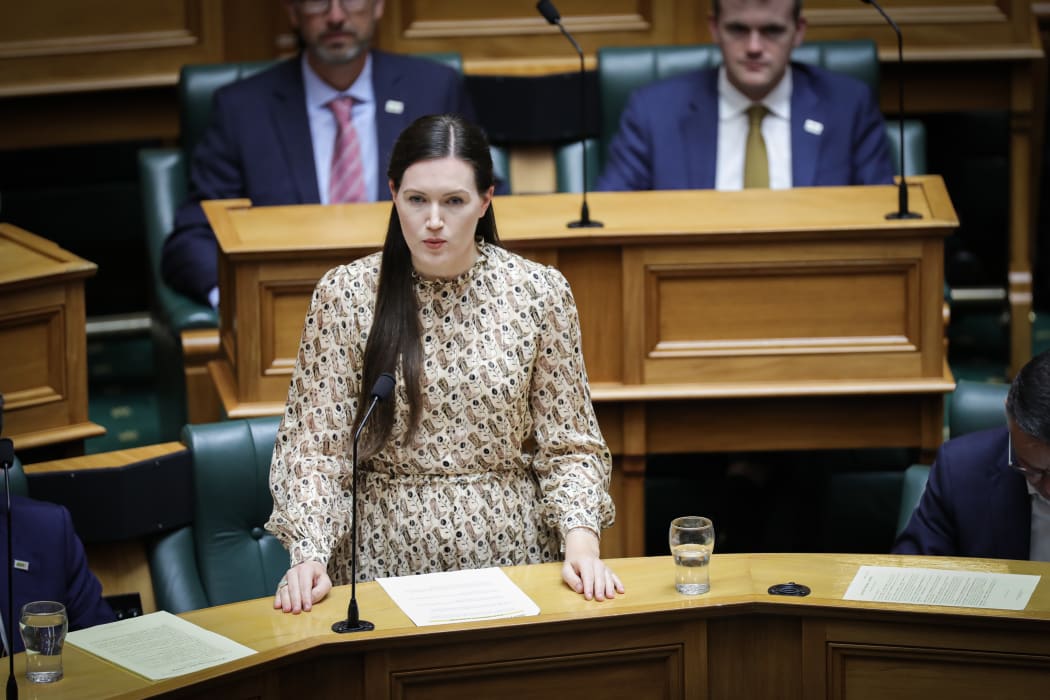
ACT MP Brooke van Velden Photo: ©VNP / Phil Smith
A treatment counter-proposal: ACT
Brooke van Velden noted that ACT “also believes that the status quo isn't acceptable”, but had a different surgical model in mind.
“We need a modern healthcare system that empowers people to get the healthcare that they truly need and deserve and we can do that by reducing bureaucracy and having a stronger focus on patient outcomes but it needs to be a greater collaboration between the public healthcare system and private provision.”…
“The ACT Party's position was always that we should reduce from 20 to six [DHBs] and it's because we believe that we do need to reduce bureaucracy. We do want to have a streamlined healthcare system and that's a positive step forward but we cannot support this bill …for two main reasons. One is it's divisive …not only do we have set up under one entity, Health New Zealand, there is a separate entity that is being set up called the Māori Health Authority.”
“The second reason that we oppose this bill is because we're currently in a COVID crisis. …We do not need more uncertainty at this time and we certainly don't need more uncertainty in our healthcare system. That is the whole reason why we had lockdowns in the first place. We cannot in good faith agree with disestablishing the healthcare system in the middle of a pandemic.”
Inviting public interventions
A special, temporary select committee is being created just to deal with this Bill - and with extraordinary efficiency they have already put out the call for public submissions.
This is your chance to become a legislative diagnostician and proffer your own therapeutic ideas, be they a radical intervention or just a course of leeches and a faddish diet.
It's worth keeping in mind that Select Committees tend to prefer submissions that propose tweaks and improvements to the suggested prescription rather than starting from scratch.
The Committee will be accepting prescriptions from the public until December 9th.
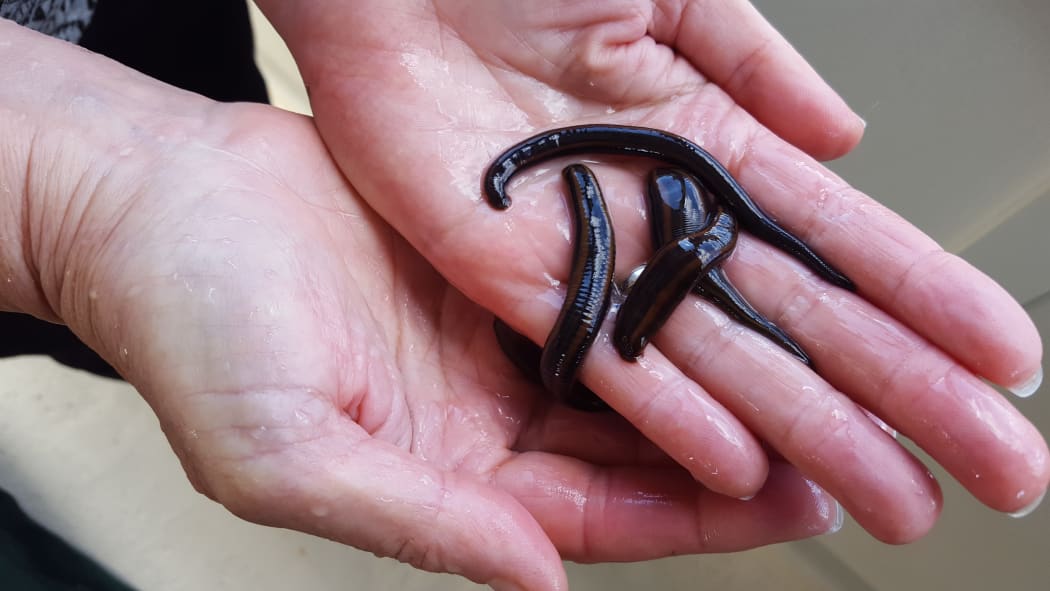
Leeches anyone? Or a diet, or maybe a diet of leeches? Photo: Susan Murray RNZ


